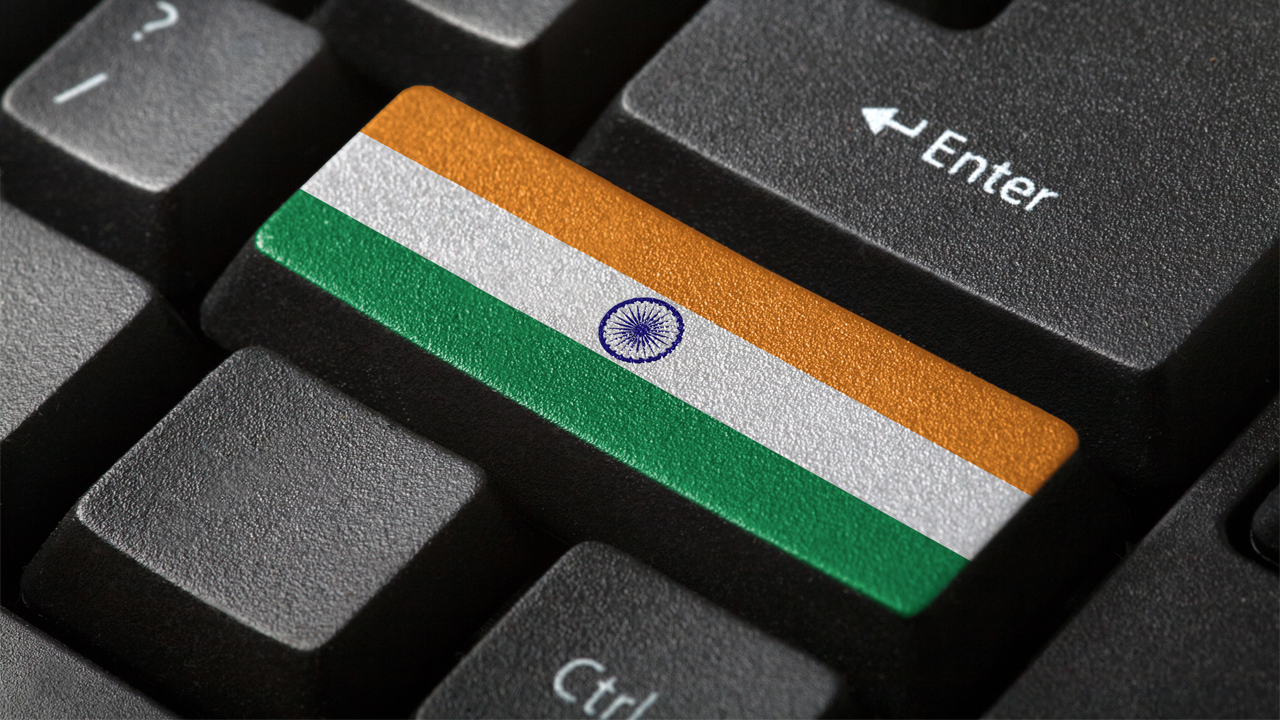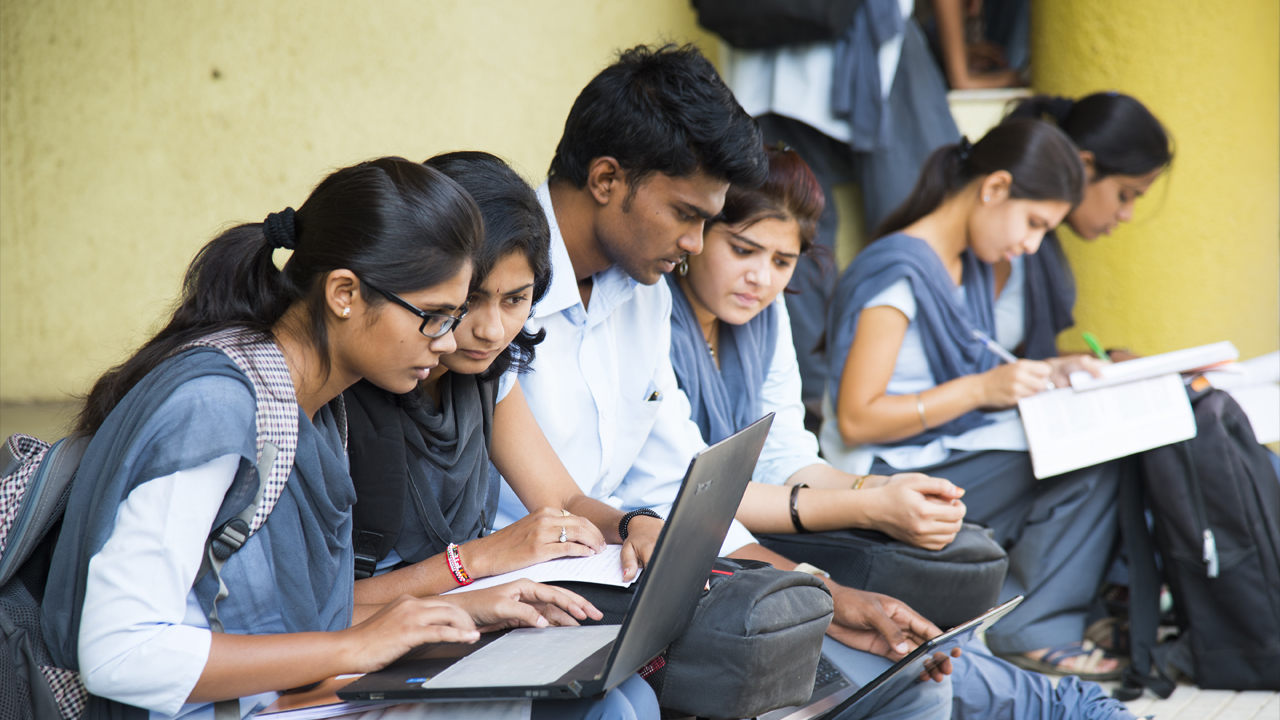Why do you need a VPN in India?
A VPN is essential if you want online anonymity in India

Here at Tom’s Guide our expert editors are committed to bringing you the best news, reviews and guides to help you stay informed and ahead of the curve!
You are now subscribed
Your newsletter sign-up was successful
Want to add more newsletters?

Daily (Mon-Sun)
Tom's Guide Daily
Sign up to get the latest updates on all of your favorite content! From cutting-edge tech news and the hottest streaming buzz to unbeatable deals on the best products and in-depth reviews, we’ve got you covered.

Weekly on Thursday
Tom's AI Guide
Be AI savvy with your weekly newsletter summing up all the biggest AI news you need to know. Plus, analysis from our AI editor and tips on how to use the latest AI tools!

Weekly on Friday
Tom's iGuide
Unlock the vast world of Apple news straight to your inbox. With coverage on everything from exciting product launches to essential software updates, this is your go-to source for the latest updates on all the best Apple content.

Weekly on Monday
Tom's Streaming Guide
Our weekly newsletter is expertly crafted to immerse you in the world of streaming. Stay updated on the latest releases and our top recommendations across your favorite streaming platforms.
Join the club
Get full access to premium articles, exclusive features and a growing list of member rewards.
When the international NGO Freedom House ranked India 33rd out of 65 countries on its global rankings of internet freedom, it marked the fourth consecutive year in which internet freedom had declined in India – and with that decline, the popularity of the India VPN has boomed.
Internet censorship in India is a reality most people must confront, with limited or no access to many websites and apps. In technical terms, the government uses DNS filtering to block URLs it deems to be undesirable. Under the Information Technology Act of 2000, the Indian government has broad and ambiguously defined powers to censor and restrict internet access.
Although there’s no official list of banned websites, blocked content includes sites containing politically sensitive or adult material, sites advocating opposition to the ruling Government, and most Chinese-owned apps. If you want to access these sites, you’ll need to use a VPN, which accounts for why VPNs are becoming more and more popular in India.
In this article, we explain the top reasons you might need a VPN, and why subscribing to one of the best VPN services is a must if you plan to live or travel in India.
Access politically sensitive material
The Indian government limits access to many websites that advocate for or disseminate anti-government or separatist information. Some religious groups have been blacklisted, even if they don’t actively oppose the ruling government. Although a VPN will enable you to access this type of content, we don’t recommend it, as accessing the content may be illegal (even if using the VPN itself is perfectly legal).
The Indian Government also consistently limits internet access when major protests occur, denying people on the ground from accessing national and international media outlets and making interpersonal communication difficult. These types of internet shutdowns achieved international prominence in 2019 when protests occurred in the Jammu and Kashmir regions in northwest India. In this case, A VPN may help you get around these context-specific shutdowns.

Access geo-blocked content
One of the most popular reasons for using a VPN is to access geo-blocked content on streaming platforms such as Netflix, Amazon Prime, or BBC iPlayer. Fortunately, the top VPN services make it easy to spoof these platforms into thinking you’re located somewhere else, unlocking global content without leaving your home, let alone India.
You can also use a streaming VPN to access Indian content overseas, which is ideal if you’re craving your Bollywood fix or an update from the latest international cricket match.
Access Chinese apps and platforms
Amidst rising political tensions between India and China in 2020, the Indian Government made the significant decision to ban over 200 Chinese-owned apps, including some of India’s most popular apps like TikTok, WeChat, and VivaVideo. It’s now impossible to download these apps in India without using a VPN.
Ironically, however, the banning of these apps appears to have backfired on the Indian Government, with more young Indian people than ever before using VPNs to access these platforms.
Protect your online privacy
Between cybercrime and government surveillance, the internet just isn’t as safe as it used to be. This is why many people in India are choosing to use VPNs to protect their identity online.
Online anonymity is particularly crucial in a country like India, where the government forces internet service providers (ISPs) to provide metadata to government agencies. These information-sharing relationships make it possible for authorities to know which websites you visit, when you visit them, and what you look at. If you’d rather keep this information to yourself, a VPN is your best bet.
Any good VPN will hide your IP address from your ISP and the websites you visit, ensuring your location and identity can’t be tracked. Hiding your IP address also provides essential protection against cybercriminals who might target you in a phishing scam or coordinated cyberattack.
All in all, there are many reasons to use a VPN in India – the most difficult decision is which one to choose.
Which VPN do we recommend for users in India?
ExpressVPN stands out from the competition in terms of price, features, and value. With servers in nearly 100 countries, excellent censor-evading power, blazing connection speeds, and reliable access to multiple streaming services, ExpressVPN has everything that one would need from a VPN in India.
While some users may prefer certain features of other top VPNs, it’s the best overall option for most users – and now Tom’s Guide readers can claim three months absolutely free.
- Save big money with the best VPN deals
- Amazon users should have a look at the best Fire Stick VPN
- Pick up a bargain with a cheap VPN
Get instant access to breaking news, the hottest reviews, great deals and helpful tips.

Darcy is a freelance copywriter, and a candidate for the dual master's program between the Paris Institute of Political Studies (Sciences Po) in France and Peking University in Beijing, China. His academic and professional areas of interest include human rights and development, sustainable agriculture and agroecology, Pacific Islands diplomacy, and Sino-Australian relations.
 Club Benefits
Club Benefits











